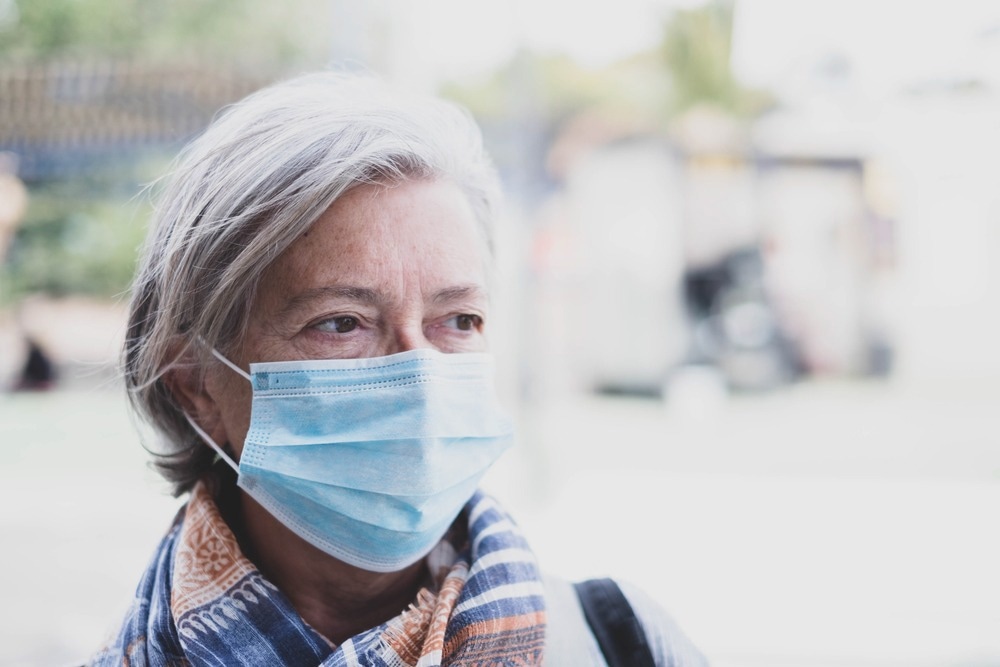In a recent study published in The Lancet Health Longevity, researchers reported on the benefit of immunity developed by previous severe acute respiratory syndrome coronavirus 2 (SARS-CoV-2) infection for overcoming the age-associated decline in coronavirus disease 2019 (COVID-19) vaccine effectiveness (VE).
 Study: Natural immunity helps overcome the age-related decline of SARS-CoV-2 vaccine immunogenicity. Image Credit: Perfect Wave/Shutterstock
Study: Natural immunity helps overcome the age-related decline of SARS-CoV-2 vaccine immunogenicity. Image Credit: Perfect Wave/Shutterstock
Background
COVID-19 vaccines have been developed to prevent SARS-CoV-2 infections; however, natural immunity gained by previous SARS-CoV-2 infections is especially beneficial for older individuals in whom the efficacy of COVID-19 vaccines is low. Previous studies have supported the notion, as greater antibody titers have been observed among individuals with prior COVID-19 history compared to COVID-19 vaccine recipients without prior COVID-19 history.
It has been found that VE of COVID-19 vaccines against SARS-CoV-2 infections post-second vaccine dose among adults without prior COVID-19 reduces from 85% (post-30 days to 60 days) to 51% after about nine months. On the other hand, VE remains at 90% even after nine months among those with prior COVID-19. In addition, previous SARS-CoV-2 exposure has been found to protect against COVID-19 severity, indicating higher adaptive immune responses involving a cluster of differentiation 8 (CD8) cytotoxic and CD4 helper T-lymphocytes.
About the study
In the present study, researchers highlighted the benefits of previous SARS-CoV-2 infection among older adults with reduced VE of COVID-19 vaccines.
The study comprised about 500 staff members <65 years and residents >65 years old (of whom 80% were aged above 80 years). The study cohort received the second dose of either the BNT162b2 (BioNTech–Pfizer) or ChAdOx1 nCoV-19 (Oxford–AstraZeneca) vaccines and the titers of antibodies against the SARS-CoV-2 spike (S) protein post second COVID-19 vaccination were assessed. In addition, the effect of the second COVID-19 vaccination on SARS-CoV-2 neutralization was evaluated.
To evaluate the cell-mediated (T lymphocyte) immune responses, peripheral blood mononuclear cells (PMBCs) that produced interferon-gamma (IFN-γ) were quantified. Further, the expression of cytokines such as tumor necrosis factor (TNF) and chemokines such as C-X-C motif chemokine ligand 10 (CXCL10) was evaluated among the two groups. Subsequently, the cytokines were stained intracellularly to particularly quantify IFN-γ- and interleukin 2 (IL-2)-producing CD4 T lymphocytes.
Results
The second vaccination with either BNT162b2 or ChAdOx1 nCoV-19 vaccines significantly boosted anti-S titers and enhanced the neutralization of SARS-CoV-2. The effects were substantially higher among staff than residents. However, the findings were true only for the study participants with no prior COVID-19 history; previously seropositive residents [with antibody titers against the SARS-CoV-2 nucleocapsid (N) protein] demonstrated similar titers as the staff group. Importantly, both groups demonstrated almost 100% SARS-CoV-2 neutralization.
T lymphocyte or cell-mediated immune responses were similar to their humoral or antibody-mediated counterparts, although prior COVID-19 history provided less beneficial effects on the immunity of the staff group individuals. Prior COVID-19 history was associated with substantially higher expression of TNF and CXCL10 after stimulation with S protein ex vivo.
Differences in frequencies of IFN-γ- and IL-2-producing CD4 lymphocytes were not substantially apparent based on the status of SARS-CoV-2 infections; however, the central memory CD4 T lymphocyte frequency was double in individuals with prior COVID-19 history. On the contrary, T lymphocytes that featured a phenotype with terminal differentiation were lower by four-fold among those with prior COVID-19 history compared to those without prior COVID-19 history.
Conclusions
Overall, the study findings showed that elder and frail adult individuals could generate robust and long-term memory anti-SARS-CoV-2 responses following COVID-19, comparable to younger adult individuals. The present study adds knowledge essential to understanding age-related differences in the immunological system.
In addition, the study findings provide potential clues to mechanisms by which natural immunity developed due to previous SARS-CoV-2 infection could support COVID-19 vaccine responses. The study results indicate a potential role of central memory CD4 T lymphocytes and IFN-γ-releasing memory CD8 T lymphocytes in the immune benefits of previous SARS-CoV-2 infection. The CD4 and CD8 lymphocytes could support mucosal defense against SARS-CoV-2 infections by the activation of cells of innate immunity while causing chemokine-mediated stimulation of effectors.
The study findings could inform policymakers to identify individuals at the high priority of preventive measures against COVID-19. However, further research must be conducted to evaluate the extent to which natural SARS-CoV-2 infections provide immune protection against future SARS-CoV-2 variants in older adults and elucidate the mechanisms of such immune protection.